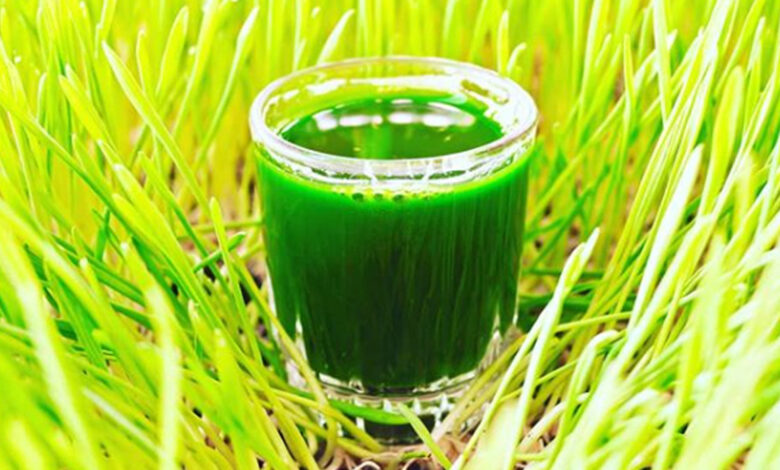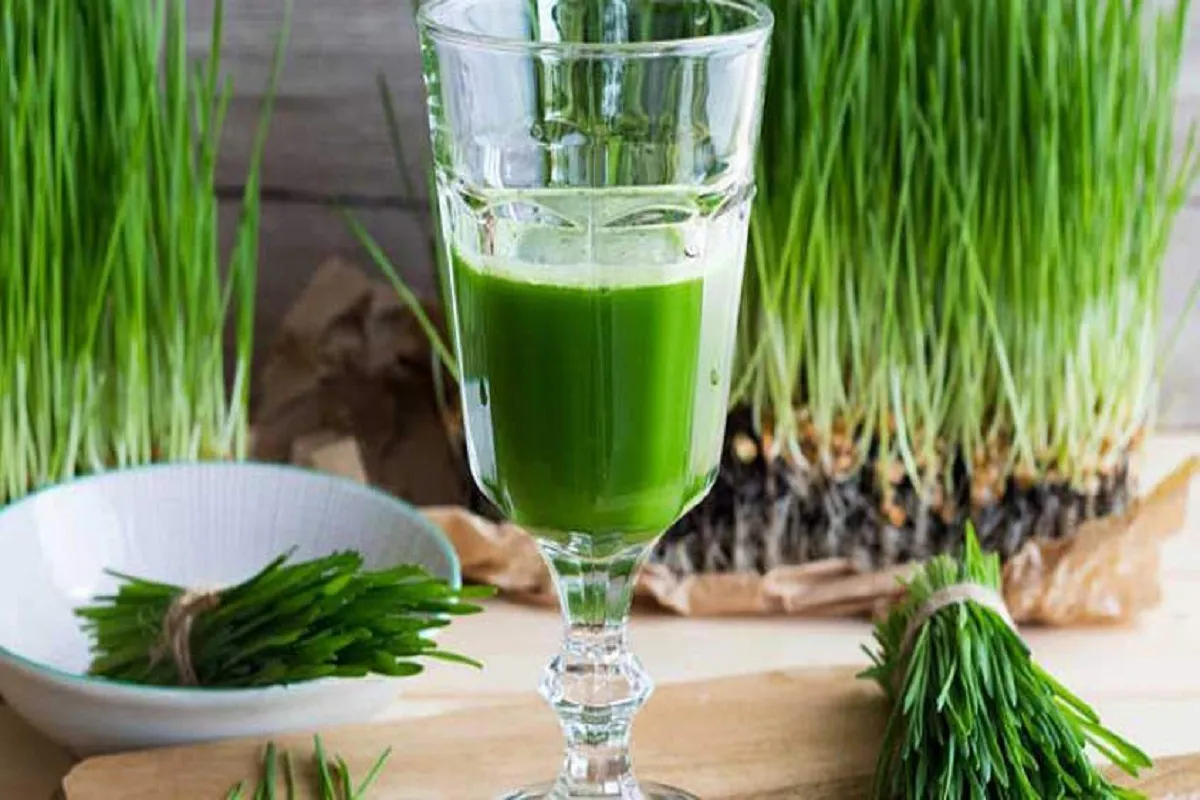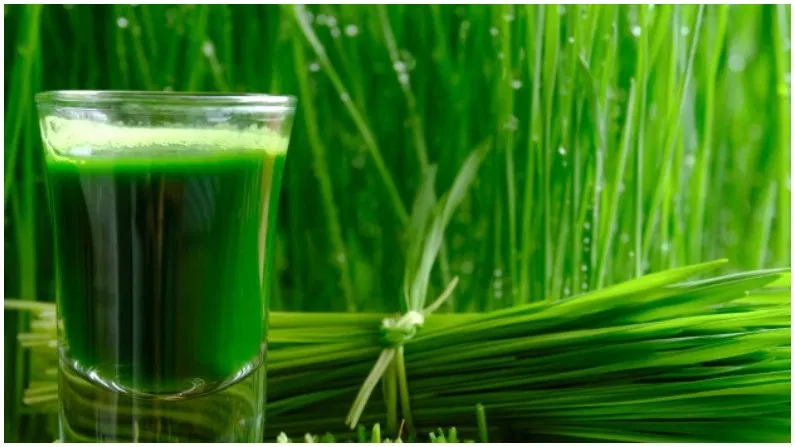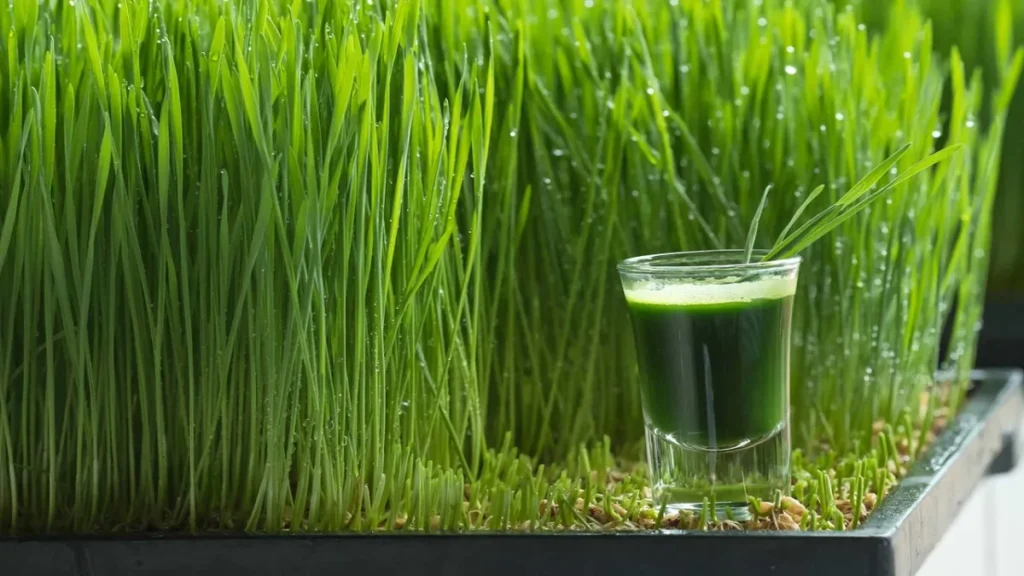Add Wheatgrass to Your Daily Routine for Health Benefits

In today’s currently health-concentrated world, the quest for natural solutions to boost wellness, immunity, and energy has guide many to discover wheatgrass. Known for its rich, green color and potent nutrient profile, wheatgrass has become a staple for those looking add to their health without synthetic supplements. Eat up perfectly a teaspoon of wheatgrass daily can support detoxification, improve energy, and even promote healthier skin.Health Benefits of Adding Wheatgrass to Your Daily Routine are that_
This article delves into the top health benefits of wheatgrass, its nutrient composition, and how to easily incorporate it into your day.
Nutritional of Wheatgrass
Wheatgrass is a young shoot of the wheat plant, Triticum aestivum, typically take in before it develops grains. This early take in captures peak nutritional weight which contributes to its name as a superfood.
Wheatgrass is great in Vitamins A, C, E, and K, each of which plays essential roles. Vitamin A supports skin and vision, vitamin C boosts immunity, vitamin E fights oxidative stress, and vitamin K aids in blood clotting.
Minerals include iron, calcium, and magnesium. Iron supports red blood cell production, calcium isessential for bone health, and magnesium regulates muscle and nerve functions.
Wheatgrass contains 17 Amino acids, including eight essential ones that the body cannot produce. Amino acids aid in tissue repair and muscle growth.
Known as “plant blood” due to its structural similarity to human hemoglobin, Chlorophyll is key for detoxification, oxygenating cells, and supporting red blood cell production.
Wheatgrass is loaded with Antioxidants, including glutathione, which helps combat oxidative stress_a leading factor in aging and chronic disease.

Health Benefits of Wheatgrass
Immune System_ The Boost immune system benefits greatly from wheatgrass’s antioxidant and vitamin content. Vitamin C, a potent antioxidant, neutralizes free progressive that could otherwise lead to inflammation and cell damage. A strong immune system is critical not only in fighting off infections but also in maintaining overall health. The addition of wheatgrass to a daily routine can provide a natural defense against common infections and long-term immunity support.
Liver Health_ is one of wheatgrass’s most acclaimed benefits. Chlorophyll binds to toxins, heavy metals, and harmful chemicals, helping the body eliminate them efficiently. This process reduces the load on the liver, which is the body’s primary detoxifying organ. Research indicates that regular wheatgrass consumption can aid in reducing liver lipid levels, thus potentially preventing conditions such as fatty liver disease.
Studies have shown chlorophyll’s ability to neutralize carcinogens, indicating its importance in cleansing the body at a cellular level. For people exposed to pollutants, alcohol, or a processed diet, wheatgrass can serve as a gentle, daily detox aid.
Improves Digestion_ Wheatgrass contains several enzymes like protease and lipase that help the body digest proteins and fats. These enzymes enhance nutrient absorption, allowing the body to extract more vitamins and minerals from food. Additionally, the fiber in wheatgrass supports gut health, promoting regular bowel movements and balanced gut flora.
People suffering from constipation, bloating, and irritable bowel syndrome (IBS) often find relief with wheatgrass. It also acts as a natural deodorizer, reducing body odor and bad breath by cleaning up the digestive tract.
Enhances Energy Levels Naturally_ Unlike caffeine, which provides a quick burst of energy wheatgrass offers sustained energy by improving cellular function and enhancing oxygen transport in the blood. The body relies on balanced pH levels for optimal energy production_ wheatgrass, with its alkalizing properties, supports this balance and counteracts the acidity from sugar-heavy or processed diets.
For athletes or those with physically demanding jobs, wheatgrass can improve endurance and reduce recovery time post-exercise. The daily boost in vitality without the risk of caffeine crashes makes it a popular choice for natural energy enhancement.
Healthier skin & Anti-Aging_ The chlorophyll, vitamins, and antioxidants in wheatgrass contribute to healthier skin slow down the aging process. Free radicals can lead to visible aging signs like wrinkles, fine lines, and skin dullness; the antioxidants in wheatgrass combat these effects.
Wheatgrass can even be applied directly to the skin to treat acne, dry, and other skin conditions due to its antibacterial and anti-inflammatory properties.
Aids in Weight Management and Metabolism_ Wheatgrass can be beneficial for those aiming to manage their weight. The high fiber content promotes satiety, reducing unnecessary snacking and overeating. Wheatgrass also helps stabilize blood sugar levels, thus reducing sugar desire, which can be crucial for weight management. Its metabolism-boosting properties make it easier for the body to burn calories efficiently.
Enhances Blood Health_ Wheatgrass supports blood health through its chlorophyll content, which enhances oxygen delivery to cells, improving circulation and cellular energy. This increased oxygenation can lead to better mental focus and reduced fatigue, while its high iron content aids those who struggle with anemia.

How to Add Wheatgrass to Your Daily Routine
Wheatgrass can be consumed in several forms on your_
Fresh wheatgrass Juice is highly potent and can be consumed on its own or added to smoothies. It’s the purest form, though its taste may be strong for beginners.
Wheatgrass Powder is easy performance for adding to juices, water, or smoothies. It’s a versatile option for daily consumption.
For those who prefer not to deal with the taste, wheatgrass capsules or Tablets are a great alternative.
Start with a small Dosage Tips (about 1 teaspoon) and monitor how your body responds before gradually increasing. Consistency is key to seeing benefits, so find a form and dosage that fit difficulty into your lifestyle.
Potential Side Effects and Precautions Of Wheatgrass
While wheatgrass is generally safe, some people may experience mild side effects, especially when starting. Common reactions include nausea or mild digestive discomfort, which typically subside as the body adjusts. Due to its potency, wheatgrass is best introduced gradually, and you should consult a healthcare provider if you are pregnant, breastfeeding, or have gluten sensitivities.





